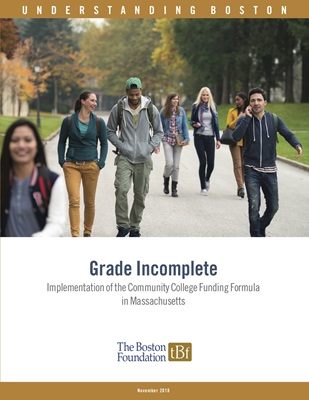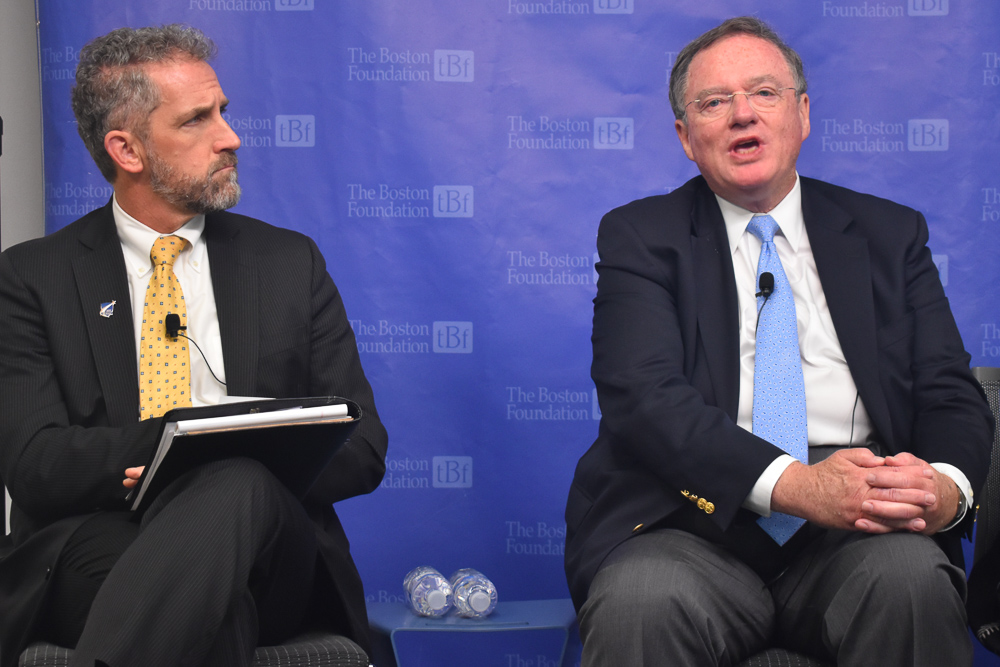Grade Incomplete: Understanding Boston Forum
Implementation of the Community College Funding Formula in Massachusetts
December 4, 2018
It didn't last long, and it was never fully implemented, but the performance funding formula introduced as part of community college reform legislation in 2013 both made an impact and provided lessons for future funding efforts, according to a report released at the Boston Foundation's Edgerley Center for Civic Leadership.
The report, Grade Incomplete: The Implementation of the Community College Funding Formula in Massachusetts, was written by the Massachusetts Taxpayers Foundation with the support of the Boston Foundation, and served as a jumping off point for a broader discussion of the needs and challenges facing community colleges and their students. The event opened with a review of the report findings by Eileen McAnneny of the Massachusetts Taxpayers Foundation, who noted that in FY2014, the first year that performance funding was put into place for new dollars into the community college system, it had a measurable impact by narrowing the per-student funding gap among the 15 community colleges. However, stop loss provisions meant to protect college budgets from major swings meant that the performance funding formula was never fully implemented, and after 2014, the formula was used for shrinking amounts of money until its phase out in 2017.
Higher education officials at the event recognized the value that the discussion of performance funding had on the system, but questioned whether or how a new funding formula should be implemented. Massachusetts Commissioner of Higher Education Carlos Santiago ranked reconsideration of performance funding behind other issues, such as improving developmental education and financial aid programs. Lane Glenn, President of Northern Essex Community College and Luis Pedraja, President of Quinsigamond Community College, expressed concern that performance funding might create a system where colleges competed with each other on specific metrics instead of cooperating and being able to make their own best cases for funding.
Glenn also expressed a concern that his students typically don't have the luxury of choosing between campuses, transferring from one with less resources to ones with more. "Our students are not deciding which college to attend; they're deciding whether to attend college," he said. "I'm not arguing against a performance-based funding formula, but how we do it matters."
Dan O'Connell, President of the Massachusetts Competitive Partnership and a key advocate for the 2013 legislation, cautioned against discarding the 2013 funding reform, or performance funding in general. O'Connell highlighted that providing appropriate metrics to measure success can be a part of a larger effort to strengthen connections between businesses and community colleges, providing opportunities for students and ensuring quality education for them.
The collaboration theme was echoed throughout the forum, in what arguably could be the most lasting impact of the 2013 funding effort. It sparked a statewide conversation among community college, civic and business leaders - a conversation that continued at this event.


